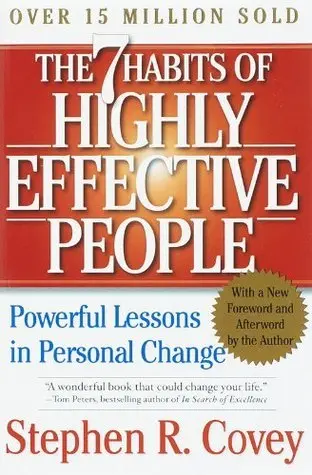Note that this list is not exhaustive, as it is automatically aggregated based on manually assigned categorizations.
If you notice a missing element, or think some of the items are wrongfully categorized, please create a bug/improvement ticket on our github issue tracker.
An overview of all tags used in this publication can be found in our tag list: go to overview
Patterns: prioritization
problem:You often struggle with deciding what to do next, feeling uncertain about which choice would be most beneficial for you.
description:Use a systematic framework to make informed decisions by evaluating your resources — Support, Time, Energy, Attention, and Money.
problem:You find yourself constantly busy, yet achieving little of value.
description:Assign a priority category to tasks based on their urgency and importance. Act depending on priority category.
description:Our time on earth is limited, so try to make the most of it.
Resources: prioritization
The 7 Habits of Highly Effective People: Powerful Lessons in Personal Change
( permalink )Covey, S. R.; Collins, J. (2004) The 7 Habits of Highly Effective People: Powerful Lessons in Personal Change. Free Press. isbn: 0743269519.
A revered classic in the realms of both software development and management, Stephen R. Covey’s book delves into the transformative power of effective habits. Covey introduces readers to a set of values and practices that promote mindful time management. He explores the art of personal management systems, the significance of mastering the skill of saying “no,” and the profound notion that “saying yes to something means saying no to something else.” Covey’s book invites the reader to introspection, encouraging them to reflect on their desired self and guiding them toward tangible steps to achieve personal growth and effectiveness.
Getting Things Done: The Art of Stress-Free Productivity
( permalink )Allen, D. (2015) Getting Things Done: The Art of Stress-Free Productivity. Penguin Books. isbn: 0143126563.
A no-nonsense approach to take control of your time. Allen shares his tips to keep focussed on what is important to you, emphasises the need for a system you can trust, and empowers you to implement a way of organizing your life and commitments that fits your preferences.
Pragmatic Thinking and Learning: Refactor Your wetware
( permalink )Hunt, A. (2008) Pragmatic Thinking and Learning: Refactor Your wetware. The Pragmatic Bookshelf. isbn: 978-1934356050.
Dive into your own brain and learn about efficient learning. Hunt discusses various techniques that have helped him stay on top of his game over a career spanning decades. As a professional, your main weapon is your ability to learn. Unfortunately, many of us are left to our own devices in figuring out which approaches work well for us. This book helps by providing a plethora of time-proven learning techniques and tools to discover your own preferences.



